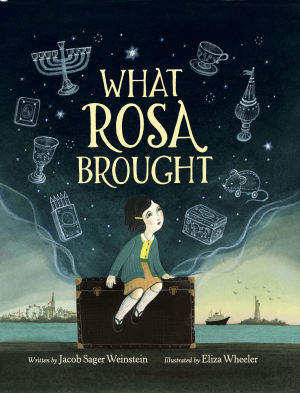This book paints a charming yet completely down-to-earth and realistic picture of what it is like to live in Israel in the year 2023. The authors are both immigrants from the United States, and through their eyes we see Israel’s strengths, weaknesses, foibles, and successes. It is obvious that they have a deep and abiding appreciation for their adopted land — and their wry humor makes it clear that they enjoy the lives they have built in this complex, value-laden country.
The book is divided into sections. The first, “Israeli Psyche,” uses Hebrew words to analyze traits that are common in Israeli society, as well as how they compare to Americans’ expectations of Israelis. “Jewish Life in a Jewish State” investigates the difference between an Israeli and a Jew and how Judaism affects Israeli society. In “The Hebrew Language,” we learn about Eliezer Ben Yehuda and his successful efforts to revive a language that was not in use during modern times. We also gain insight into the Israel Academy of Hebrew Language, which continues to shape and modernize Hebrew. A short, interesting section discusses the development of “Aravrit,” an amalgam of Hebrew and Arabic that is unfamiliar to most people but that has fascinating potential applications.
“Government, Social Policy, and Education” looks closely at Israeli politics, elections, the education system, and the famous Israeli statesmen and stateswomen in Israel’s short but eventful history. “Economy, Work, and Work-Life Balance” discusses real estate, shopping, banking, and some of the reasons why Israeli businesses have become internationally successful. Other chapters provide an overview of the Israeli Defense Forces as well as Israeli arts and culture. In “Making Aliyah,” we learn about the intricacies, difficulties, and rewards of immigration and acculturation. The authors point to some deeply funny language faux pas that occur regularly, as when the word for postcards is mistaken for “birth control pills,” or when a degree in economics is confused with a brand of bleach.
Although the Arab-Israeli conflict is not without mention, the authors carefully avoid a protracted discussion of it. They note that much has already been written on the topic, and they point out the danger of people equating life in Israel with enmity and war. Life in Israel, they remind us, is rich and satisfying. It is not only about the conflict.
Israel 201 is informal, inclusive, and filled with humor — just like Israeli society itself. It is an enjoyable and fascinating look at life in Israel today, reflecting the experiences of many residents. For those who have considered moving to Israel in the near or more distant future, this is a must-read.
Michal Hoschander Malen is the editor of Jewish Book Council’s young adult and children’s book reviews. A former librarian, she has lectured on topics relating to literacy, run book clubs, and loves to read aloud to her grandchildren.


